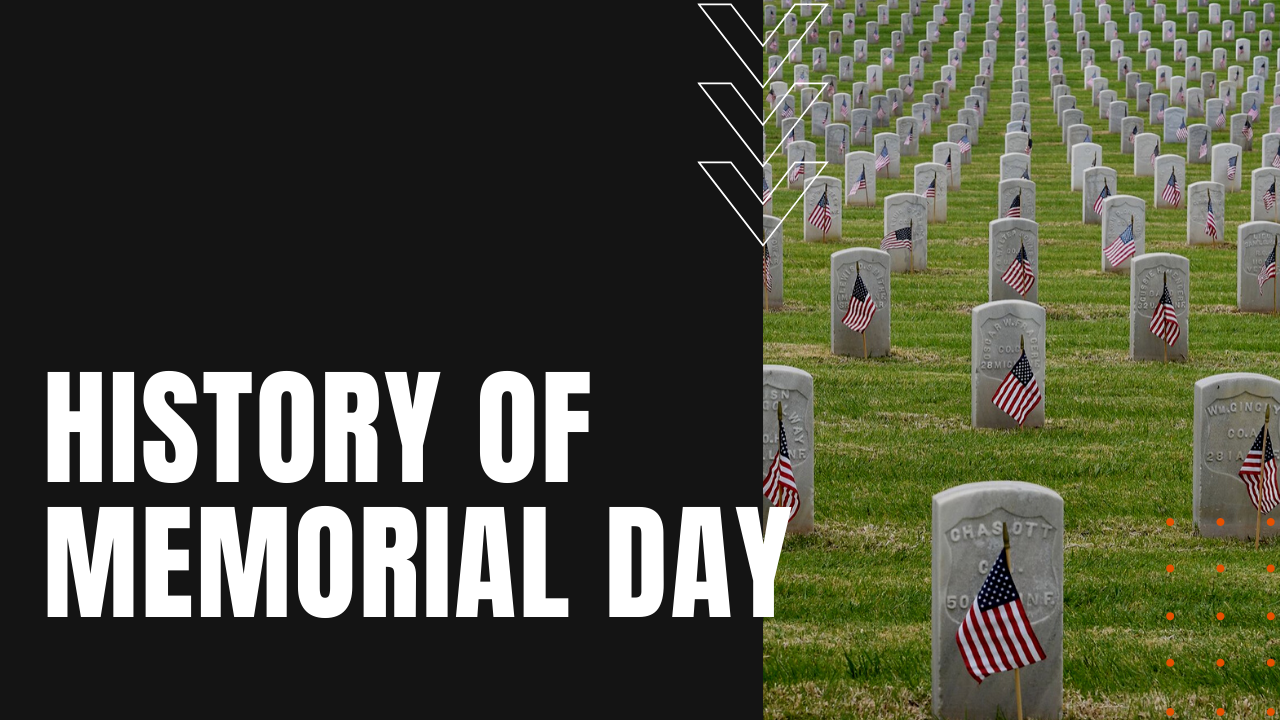History of Memorial Day

Ending in the spring of 1865, the Civil War claimed more lives than any conflict in American history—approximately 620,000—necessitating the establishment of the country’s first national cemeteries. By the late 1860s, Americans in various towns and cities had begun holding springtime tributes to these countless fallen heroes, decorating their graves with flowers and reciting prayers in their honor.
Historical records indicate that one of the earliest Memorial Day commemorations was organized by a group of freed slaves in Charleston, South Carolina less than a month after the Confederacy surrendered, while on May the 5th, 1868, General John A. Logan, leader of an organization for Northern Civil War veterans, called for a nationwide day of remembrance later that month.
The First Celebration of Memorial Day
On May 30th, 1868, the first Decoration Day, as Memorial Day was originally known, General James Garfield made a speech at Arlington National Cemetery, before 5,000 participants decorated the graves of some 20,000 Civil War dead.
For decades, Memorial Day continued to be observed on May 30th, the date Logan had selected for the first Decoration Day, but in 1968 Congress passed the Uniform Monday Holiday Act, which established Memorial Day as the last Monday in May in order to create a three-day weekend for federal employees, which went into effect in 1971.
Waterloo, New York: Birthplace of Memorial Day
In 1966, the federal government declared Waterloo, New York, the official birthplace of Memorial Day, after Waterloo gained that distinction by establishing an annual tradition of hosting community-wide events, including decorating military graves with flowers and flags beginning three years after the end of the Civil War. After Waterloo set the pace, cities and towns across the United States began hosting Memorial Day parades each year, often incorporating military personnel and members of veterans’ groups, including massive parades in Chicago, New York and Washington, D.C.
Some people wear a red poppy in remembrance of those fallen in war—a tradition that began with a World War One poem by Canadian brigade surgeon John McCrae, entitled In Flanders Field. On a less somber note, many people take weekend trips or throw parties and barbecues on the holiday, perhaps because Memorial Day weekend has become the unofficial kickoff of the summer season in North America.
